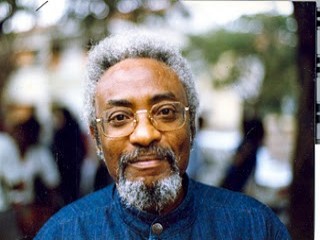
Mario Coelho De Andrade biography
Date of birth : 1928-08-21
Date of death : 1990-08-26
Birthplace : Galungo Alto, Angola
Nationality : Angolan
Category : Politics
Last modified : 2023-08-21
Credited as : poet, critic, and, political activist, Portuguese colonies, African literature
1 votes so far
Mario de Andrade: Poet, Critic, and Political Activist
Mario de Andrade, an influential Angolan poet, critic, and political activist, played a pivotal role in expressing the struggle for independence from Portuguese colonial rule in Angola and other Portuguese colonies. Through his writings and actions, de Andrade aimed to liberate Angola from colonial control and pave the way for the nation's self-determination.
Early Life and Education
Born on August 21, 1928, in Galungo Alto, Angola (then a Portuguese colony), Mario Coelho Pinto de Andrade grew up with a strong sense of the need for Angola's freedom. His commitment to the nation's cause was evident in his endeavors as a poet, critic, and political leader. His education began in Luanda, the capital city of Angola, and extended to Mozambique before he pursued studies in philosophy and sociology in Lisbon, Portugal, and Paris, France.
A Voice for Independence
Even before his birth, nationalist sentiments were brewing in Angola, culminating in the formation of the Liga Africana in 1923. In 1956, de Andrade co-founded the Movimento Popular de Libertacao de Angola (MPLA), a secret organization that aimed to oppose Portuguese colonialism openly. Under his leadership, the MPLA sought to unite Angolans against colonial control, and its efforts would later inspire similar movements in other Portuguese colonies.
In the face of growing opposition, de Andrade's role expanded, leading to his involvement in the African Revolutionary Front for Independence of the Portuguese Colonies (FRAIN) and the Conference of the Nationalist Organizations of Portuguese Colonies (CONCP). His leadership and determination catalyzed the armed struggle for independence, with de Andrade advocating for a free Angola on the international stage.
The Path to Independence
The journey toward independence was marked by challenges and sacrifices. As the first overt rebellion in Portuguese colonies, the Angolan liberation movement led by de Andrade in 1961 set the stage for similar struggles in Guinea-Bissau and Mozambique. Angola's hard-won independence finally came in 1975, following the Portuguese army coup in 1974 that was partly fueled by the weakening influence of the colonial wars, including the Angolan resistance.
De Andrade's role evolved, and he ultimately transitioned to exile in France due to the complexities of MPLA politics and opposition from rival groups. He continued to contribute to African literature through his work with Presence Africaine, a renowned French-language journal.
Legacy and Contributions
In addition to his political activism, Mario de Andrade was a prolific poet and scholar. He organized the Conference of Negro Writers in 1958, advocating for the recognition of African literature. Fluent in Kimbundu, a Bantu language spoken in Angola, and Portuguese, de Andrade left a literary legacy that included anthologies of "Negro poetry expressed in Portuguese" and works on Portuguese African literature.
Despite his contributions, de Andrade's writings remain largely untranslated into English. He passed away in London in 1990, leaving behind a legacy of dedication to the liberation and empowerment of Angola.
Mario de Andrade's journey from his early life in Angola to his pivotal role as a poet, critic, and political activist underscored his unwavering commitment to Angola's struggle for independence. His writings and leadership paved the way for the nation's eventual liberation from Portuguese colonial rule, leaving an indelible mark on Angola's history and identity.
















